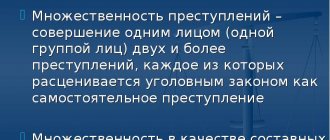A specific court panel is appointed to consider each case. And when going to court, you need to take into account how and by whom this or that case will be considered. What powers do judges have during a collegial (3 or more) review? How can a plaintiff (applicant) influence the composition of the court? If this is important to you, please read the information below.
Judicial power in our country is exercised exclusively through judges. This publication contains information about the composition of the judges, their powers, as well as additional information with the help of which a judge can be challenged.
Classification of Russian courts in civil cases
All courts that hear civil cases are divided into two groups:
- the first group is the courts of first instance. Those who consider the case after the receipt of the claim in compliance with the rules of jurisdiction and jurisdiction. They consist mainly of world and regional ones. In cases specified by law, this also includes higher courts. The function of the courts of this group is to consider the case on its merits and make a court decision.
- the second group is the appellate, cassation and supervisory courts. Their functions include mainly checking the validity, completeness and legality of decisions of lower courts.
Since October 2021, appeal and cassation courts of general jurisdiction have been operating in Russia.
What types of cases do trial courts handle?
The court of first instance hears cases of various categories, whether criminal, civil or administrative offenses.
World judge
Administrative cases are considered here, namely those offenses that relate to the “Code of the Russian Federation on Administrative Violations”.
This does not include cases related to subordinate district courts, as well as arbitration authorities. In addition, the magistrate judges light criminal offenses, that is, those for which the punishment is not more than three years in custody.
The magistrate also considers cases related to civil proceedings. This is the dissolution of a marriage, during which the issue of children or the division of property acquired over many years has become acute. However, the amount of the claim must be lower than 50 thousand rubles.
Among other things, this type of court of first instance deals with cases of family law relations, except for issues relating to the establishment of paternity and maternity, adoption and invalidation of marriage.
District Court
District courts deal primarily with administrative offenses and conduct administrative investigations, during which punishment can include either forced departure from the territory of the Russian Federation or suspension of activities.
If we talk about the consideration of criminal cases, the district court takes up almost all issues, except those that relate to the “Criminal Procedure Code”, namely Article No. 31.
Civil cases are also considered, but only those not related to the “Civil Procedure Code” and the laws of jurisdiction of other courts.
Garrison Military Court
The garrison military court considers administrative offenses related to the Code of the Russian Federation on Administrative Violations” that were committed by military personnel or persons called up for military service.
This court of first instance also deals with criminal cases committed by military personnel and citizens called up for service or undergoing military training.
Civil cases of the Garrison Court include the protection of the rights and freedoms of military personnel, the protection of their interests from any inaction of higher authorities. The court also considers cases of severe violations of disciplinary standards. For example, absence from the workplace for more than four hours without a valid reason, consumption of alcohol-containing products during working hours, violation of the regulations.
District Military Court
The District Military Court in the first instance does not consider administrative offenses, but deals with criminal offenses that were committed by military personnel or citizens undergoing military training.
The district military court imposes a strict punishment - from 15 years in custody. This court considers civil cases the same as the garrison military court.
Arbitration court of a constituent entity of the Russian Federation
Since the Arbitration Court of a constituent entity of the Russian Federation deals with legal issues, it does not consider criminal offenses.
But administrative offenses are within his power if they are within his competence under the law. Also, the Arbitration Court of a constituent entity of the Russian Federation can examine disputed cases of administrative or executive authorities that conducted their activities without proper, that is, legal, education. The court deals with all civil cases, except those related to the Supreme Arbitration Court of the Russian Federation.
Composition of the court as a judicial authority
The composition of district courts can be divided according to two criteria.
The first concerns the number of judges. Depending on the workload and population of the relevant area, the composition of the court includes several federal judges. The chairman of the court decides organizational and personnel issues, as he appoints and dismisses employees of the judicial apparatus, and also manages the court. At the same time, he himself participates in the consideration of cases. But the chairman, guided by the principle of judicial independence, does not influence the prospects for the resolution of civil cases by judges.
The deputy chairman of the court, in addition to performing the duties of a judge, carries out individual assignments of the chairman and replaces him during his absence.
The second criterion concerns the apparatus of the district court. This apparatus includes the following positions:
- assistant to the chairman;
- assistant referee;
- court administrator;
- consultant;
- Chief Specialist;
- specialists.
All employees of the apparatus are civil servants with special titles and class ranks.
How to draw up and file a claim in the court of first instance?
In order for a claim to be accepted in court, it must be drafted correctly.
To do this, you will need to study all the laws related to the case, as well as write a document according to all the rules. The statement of claim typically consists of three sections:
- Introductory part.
This is the “head” of the document, where the details of the judicial institution and the parties to the case are written. All participants in the process must be listed here. You can write the names in a column. If the paper is sent on a property issue, enter the cost of the claim. - Description.
Here, in detail, but without “water”, all the circumstances related to the incident are described. It is advisable that the applicant supports each individual point with references to a specific point from the legislation. It is best to describe each event from a new paragraph and follow as strict a chronology as possible. - Conclusion.
It summarizes the above in the statement of claim.
Then you need to list the attached documents, which should include copies of the application for all participants in the case.
You are also required to provide a receipt for payment of the state fee and evidence that indicates the validity and legality of the claim. sample statement of claim of the first instance for the dissolution of a marriage contract in .doc (Word) format sample of the statement of claim of the first instance for the division of property during divorce in .doc (Word) format The completed statement of claim can be submitted to the office or expedition of the court or to the judge himself within strictly allotted hours . The application can be sent by registered mail or courier service. But in these cases, it is necessary to draw up an inventory of the letter and confirmation of receipt.
How to determine the composition of the court
Let's remember a simple rule. In the court of first instance (after filing a claim before a decision is made, the ruling does not count), the case is considered by one judge alone (it is extremely rare that 3 judges are appointed, but these are cases to protect electoral rights). Which judge exactly? Usually judges have a certain specialization. And you can see who most often considers claims on a specific issue on the official website of the court using the section judicial records management. If you are interested in very specific details.
The Code of Civil Procedure of the Russian Federation enshrines the principle of independence of judges, which can influence the composition of the court. If a challenge to a judge is granted, the judge will be replaced.
In all other instances - in the case of appeal, cassation and appeal by way of supervision - the composition of the court is appointed collegial. The appeal is considered by 3 judges, one of whom is appointed as the presiding judge. Cassation and supervisory appeals are considered by the presiding judge and at least 2 other judges.
An exception is a private complaint, a complaint against a decision of a magistrate, a complaint in summary proceedings, a cassation complaint against a court order. Such cases are considered by the judge of the relevant instance alone.
Lawyer's answers to questions about the composition of the court in civil proceedings
I learned that the defendant is a relative of the judge who is considering our dispute.
Can I file a motion to disqualify? Yes, the presence of family ties is grounds for disqualification. By law, the judge must do this himself, but you can file a motion.
How is the composition of the court determined?
The composition is formed taking into account the workload, taking into account the specialization of the judges, experience and workload at the sites.
I want to challenge the decision, which has not yet entered into force. Where should I file an appeal?
The appeal is filed with the court that made the contested decision. Subsequently, the documents are transferred to a higher authority.
Who should file a claim?
Lawsuits are received by the office and then transferred to assistant judges. You can submit the application in person or send it by registered mail with return receipt requested.
I need to apply for an order to collect child support from my ex-husband. Where to contact?
Magistrates' courts are involved in issuing orders (Article 23 of the Code of Civil Procedure of the Russian Federation).
Powers of an assistant judge
The powers of the assistant judge are:
- selection of legal and regulatory acts required to resolve the dispute;
- control of data collection and analysis for the generation of statistical reporting;
- preparation of reports.
The powers of the assistant to the chairman of the court, in addition to those listed above, also include:
- carrying out the instructions of the chairman during internal inspections;
- organizational support for the reception of citizens;
- preparing responses to citizens' appeals submitted to the court;
- execution of other instructions of the chairman of the court.
An assistant judge may, on behalf of the presiding judge, perform the functions of a court session secretary. That is, check attendance, keep minutes of the court hearing and provide audio recording. In any case, he has no right to administer justice.
Powers of the court administrator
The administrative activities of the district court are ensured by its administrator. He is appointed to the position and dismissed from it by the head of the Judicial Department (on the recommendation of the chairman of the court). A distinctive feature of the court administrator from other positions of the judicial apparatus is dual subordination. This is the chairman of the court and the head of the body of the Judicial Department (is a staff unit of such a department).
The administrator's powers include organizing:
- court activities (preparation for a court hearing);
- record keeping, statistics and archive work;
- material and living conditions of judges and judicial staff;
- sanatorium-resort rehabilitation and medical care for the judicial apparatus;
- provision of legal literature, reference and information materials and regulations;
- information and legal support for activities;
- in other measures to ensure the activities of the court.
Powers of participating persons
Now let's look at the powers of the persons participating in the sessions or on the staff of the courts.
Judge
The activities of judges are regulated by the Law of the Russian Federation of June 26, 1992 No. 3132-1.
At the meeting, the judge is considered the main one, his powers include:
- making decisions, definitions;
- consideration of cases in accordance with the Civil Procedure Code, the Civil Code of the Russian Federation;
- organization of the review procedure;
- statement of self-recusal in the event of a conflict of interest;
- control over order in the meeting room;
- removal of other participants if order is disrupted at the hearing;
- requesting documents from state and municipal organizations.
The main requirement is strict compliance with the Constitution of the Russian Federation, the Federal Law, the Federal Law and other acts that affect the consideration of the case, the protection of the rights and interests of other persons.
Assistant referee
The powers of assistant magistrates, district and other judges are determined by various legislative acts.
Let's consider the rights and responsibilities of an assistant district judge - they are enshrined in the Order of the Judicial Department under the Supreme Court of the Russian Federation dated December 6, 2010 No. 272:
- taking organizational measures on behalf of a judge;
- studying incoming documents from citizens to check compliance with requirements;
- reports to the judge on the studied cases with a proposal to issue rulings to refuse to accept the claim, assign the case for trial or prepare for proceedings;
- preparation of documents for proceedings on behalf of a judge;
- control over the receipt by the parties of judicial acts by mail (summons);
- report to the judge on the return of subpoenas;
- preparing cases for consideration in the appellate or cassation instance;
- checking notifications of participants in proceedings about meetings;
- studying petitions to appellate instances and making proposals on ways to resolve them.
The assistant also carries out other assignments of the judge to whom he is assigned.
Court administrator
A court administrator is a person who ensures organizational activities. He is on the staff of the department and reports simultaneously to two persons - the head and the chairman of the court. The appointment of an administrator to a position is made by order of the head of the department on the proposal of the chairman of the judicial body.
The administrator's powers are determined by Art. 19 Federal Law dated 01/08/1998 No. 7-FZ:
- ensuring preparation and holding of meetings, taking organizational measures;
- maintaining statistics, records management, archives;
- taking measures to ensure living and material conditions for court employees;
- providing judges and assistants with manuals and reference materials;
- organization of economic activities, security of court buildings, uninterrupted operation of official transport;
- control of repairs and reconstruction of court buildings.
In short, the administrator is responsible for ensuring the functioning of the court.
Secretary of the court session
The secretary of the court hearing is the same person who is present at the hearing and takes the minutes.
In a global sense, his responsibilities and powers are much broader:
- receiving materials from assistant judges, preparing case covers;
- sending copies of determinations to production participants;
- filling out registration logs, cards, entering data into electronic systems;
- control over the receipt of documents requested by the court;
- transfer of minutes of the meeting for review by participants;
- registration of cases after consideration;
- checking the attendance of participants at the hearing;
- preparation of documents for the execution of decisions;
- preparation of requests and letters.
Unlike the court secretary, the court secretary is assigned to a specific area (judge).
Specialists and consultants
According to Art. 188 of the Code of Civil Procedure of the Russian Federation, judges have the right to call specialists to obtain advice. They provide technical and other assistance on photography, property valuation, etc.
Consultations are given in writing or orally. In the first case, explanations are attached to the case materials. Oral explanations are recorded by the secretary in the minutes.
Prosecutor
Based on Art. 45 of the Code of Civil Procedure of the Russian Federation, the prosecutor has the right to go to court to protect the rights and interests of citizens. The application is submitted by him if the plaintiff is unable to independently submit documents to the court due to poor health.
An exception is the statement of the prosecutor in cases of protection of social, labor, and rights. When considering cases concerning the interests of minors, the prosecutor is required to be present.
If the application is filed by the prosecutor, he has all the rights and obligations of the plaintiff, except for court costs and the conclusion of a settlement agreement.
If the plaintiff participates in the case independently, the prosecutor at the meeting expresses an opinion and gives opinions on issues of eviction, compensation for harm, reinstatement at work, and other matters.
Plaintiff and defendant
The defendant and plaintiff are participants in the proceedings, vested with rights in accordance with Art. 35 Code of Civil Procedure of the Russian Federation.
They can:
- submit petitions, objections;
- get acquainted with the case materials;
- present evidence;
- give oral and written explanations to the court;
- obtain copies of court documents;
- petition for the recusal of a judge;
- challenge rulings, rulings, decisions.
Conclusion: the judge acts as an independent party for the legal resolution of disputes, the assistant carries out his instructions, the secretary organizes meetings, and the prosecutor protects the rights of citizens.
Powers of court specialists and consultants
Certain functions are assigned to court officials, in particular, court secretaries. They carry out certain actions on behalf of the court, but under the direction of the judge. The powers of the secretary of the court session include keeping minutes of the court session, preparing court notices, and working on a request to become familiar with the case.
The position of consultant is provided for in courts with a large volume of work. The main functions of the consultant are: reference work, summarizing criminal records and maintaining a file of judicial practice.
Types and features of courts of first instance
There are a number of judicial institutions that on the territory of the Russian Federation belong to the courts of first instance:
- World judge.
He independently makes decisions on the cases being examined and the questions raised, and at the end of the meeting he pronounces a verdict. However, the power of a magistrate goes far beyond the boundaries of his duties: he has the right to make decisions that are carried out by other judicial authorities.
The powers of the magistrate judge include:- exercising control over the legality of adopted resolutions, as well as regulating the actions of officials and local authorities;
the judge carefully ensures that the decision or sentence taken comes into force as soon as possible;
- taking part in the creation of the structure of the judicial organization.
- District Court
is also a representative of the first judicial instance. In relation to the magistrate, it acts as an appellate body. The district court is considered the most accessible to the population, since it exists in every locality or its region.The court has the right to distribute responsibilities among deputies, as well as organize work or courses to improve the qualifications of judges. The district court has the right to both appoint and remove judicial officers from their positions.
- Garrison military court.
It is one of the links in the courts of first instance. He handles military cases.Unlike other courts, the garrison court can deal with an issue that arose during the consideration of the case, even if the verdict has already entered into legal force. If the case is criminal, it can be considered either by a panel or by a single judge. But people's representatives can speak at the meeting only in the role of consultants.
The rights and responsibilities of the garrison court also include arrests, detention, a ban on personal correspondence and telephone conversations.
- The district military court
works in the same way as the garrison court, with military citizens, as well as persons directly related to them. The district military court is an instance where the case will be considered by a panel of three participants, and in case of difficult issues - by a jury. - Arbitration court of a constituent entity of the Russian Federation
is the only institution that deals with economic issues that arise between citizens and companies. The arbitration court is aimed at lawful decision-making. Judges are independent in their decisions and try to equalize the rights of both parties.The powers of the court include:
- organizing a pre-trial meeting with persons participating in the process;
work with documentation - sending copies, delivering documents, sending by mail, collecting state fees;
- assistance in the work of judges;
- preservation of documentation after the court hearing.
Composition of the court when considering the case
When considering proceedings alone, the judge acts on behalf of the court. And not from myself personally. Familiarize yourself with the rules of conduct in court hearings: they address the court and give explanations while standing, without the permission of the court, explanations and arguments are not voiced, when the judge enters the room and announces the decision, everyone stands up. The court is addressed as “Dear Court.” In short, only the judge presides over the process and administers justice. But not on his own behalf, but on behalf of the Russian Federation.
When the composition of the court is collegial, the rules of conduct in the trial do not change. The order of decision-making is changing. All issues, including those requiring a separate determination (for example, on the appointment of an examination, on additional evidence, etc.) are resolved by a majority vote. And a judge who disagrees in the appointed composition of the court has the right to express a dissenting opinion, which remains in the case file, but is not announced when the decision is announced.
Judicial practice under Art. 14 Code of Civil Procedure of the Russian Federation
Determination of the Constitutional Court of the Russian Federation N 1599-O
Formation of the court composition to consider the case, i.e. the determination of a specific judge or judges is carried out taking into account the workload and specialization of judges in a manner that excludes influence on its formation by persons interested in the outcome of the trial, including using an automated information system (part three of Article 14 of the Code of Civil Procedure of the Russian Federation).
At the same time, the Civil Procedure Code of the Russian Federation, establishing the rule according to which the trial of a case must take place with the same composition of judges, at the same time allows for the possibility of replacing one of the judges during the consideration of the case in the event of a self-recusal or self-recusal, which is declared and satisfied in the manner established by this Code. recusal of a judge, long-term absence of a judge due to illness, vacation, study, being on a business trip, as well as in cases of termination or suspension of his powers on the grounds established by federal law (part four of Article CPC of the Russian Federation, parts 3 and 4 of Article 18 of the APC Russian Federation).
The purpose of such legal regulation is to ensure the possibility of correct and timely consideration and resolution of civil cases by courts, taking into account reasonable time limits for legal proceedings (Articles and 6.1 of the Code of Civil Procedure of the Russian Federation). A guarantee of the procedural rights of persons participating in the case, in the event of a replacement of one of the judges during the consideration of the case, is the rule according to which the proceedings in this case must be carried out by the court from the very beginning.
Thus, there is no reason to believe that Article 14 and part two of Article 157 of the Code of Civil Procedure of the Russian Federation violated the constitutional rights of the applicants listed in the complaint.






